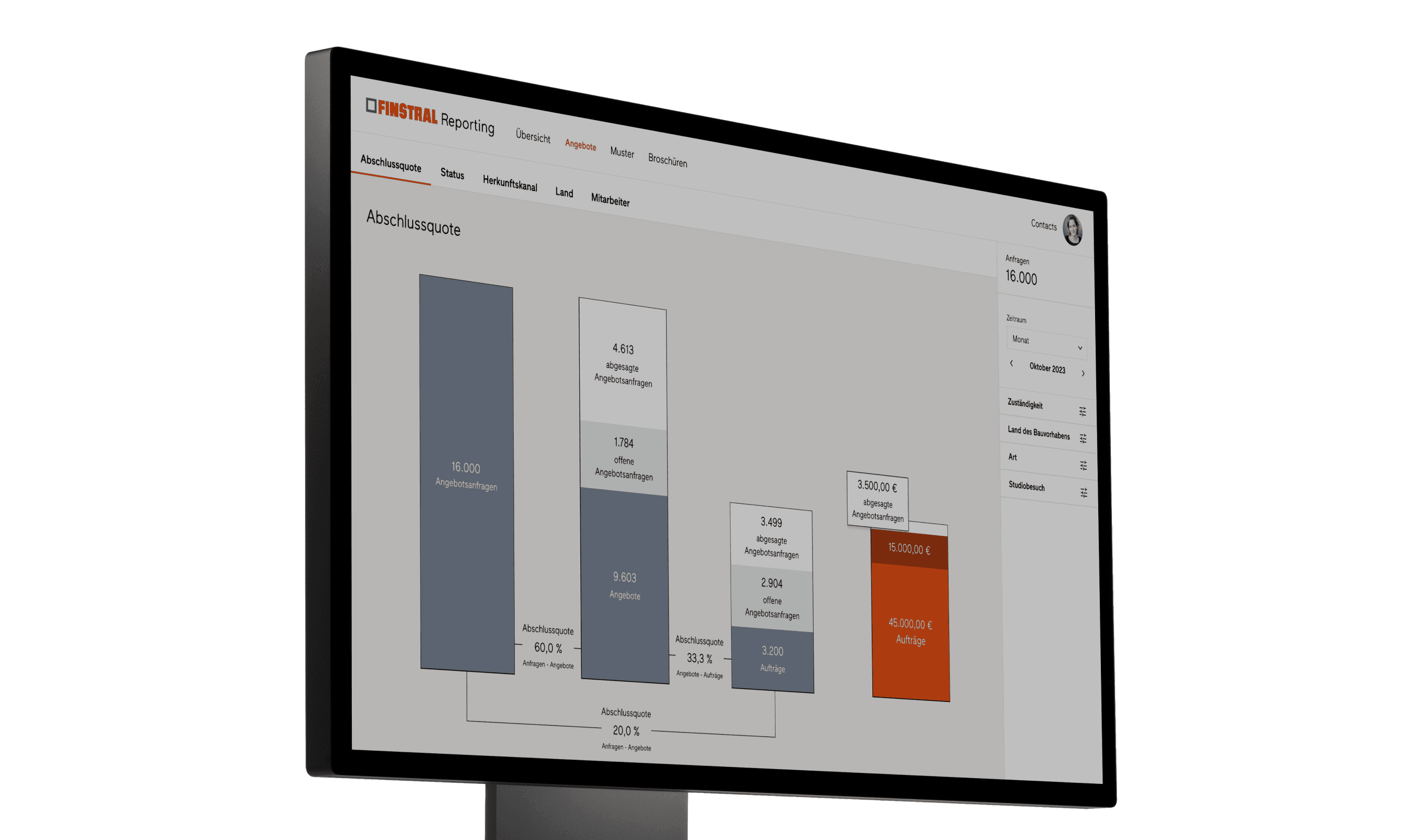
- Client
- Holidu
- Expertise
- AI Integration, Development
- Technologies
- LLM, OpenAI, Anthropic, Spring Boot
- Link
- https://holidu.com/
Holidu, founded in 2014 in Munich, is a rapidly scaling travel-tech company specializing in vacation rental search and management. Through its Holidu meta-search engine, it aggregates millions of offers across 1,000+ partner sites to help travelers find the best price. On the supply side, its Holidu Hosts solution (formerly Bookiply) supports property owners with distribution, calendar synchronization, content services, and pricing. With over 700 employees across dozens of countries, active in 21+ markets and managing tens of thousands of properties, Holidu has raised over €100 million in venture funding and received multiple awards for innovation and growth.
About the project
Development of an AI-powered system that fully automates the generation of compelling vacation rental descriptions. The solution analyzes property features, amenities, and location data to create personalized, engaging descriptions in multiple languages, significantly reducing manual work while improving content quality and booking conversion rates.
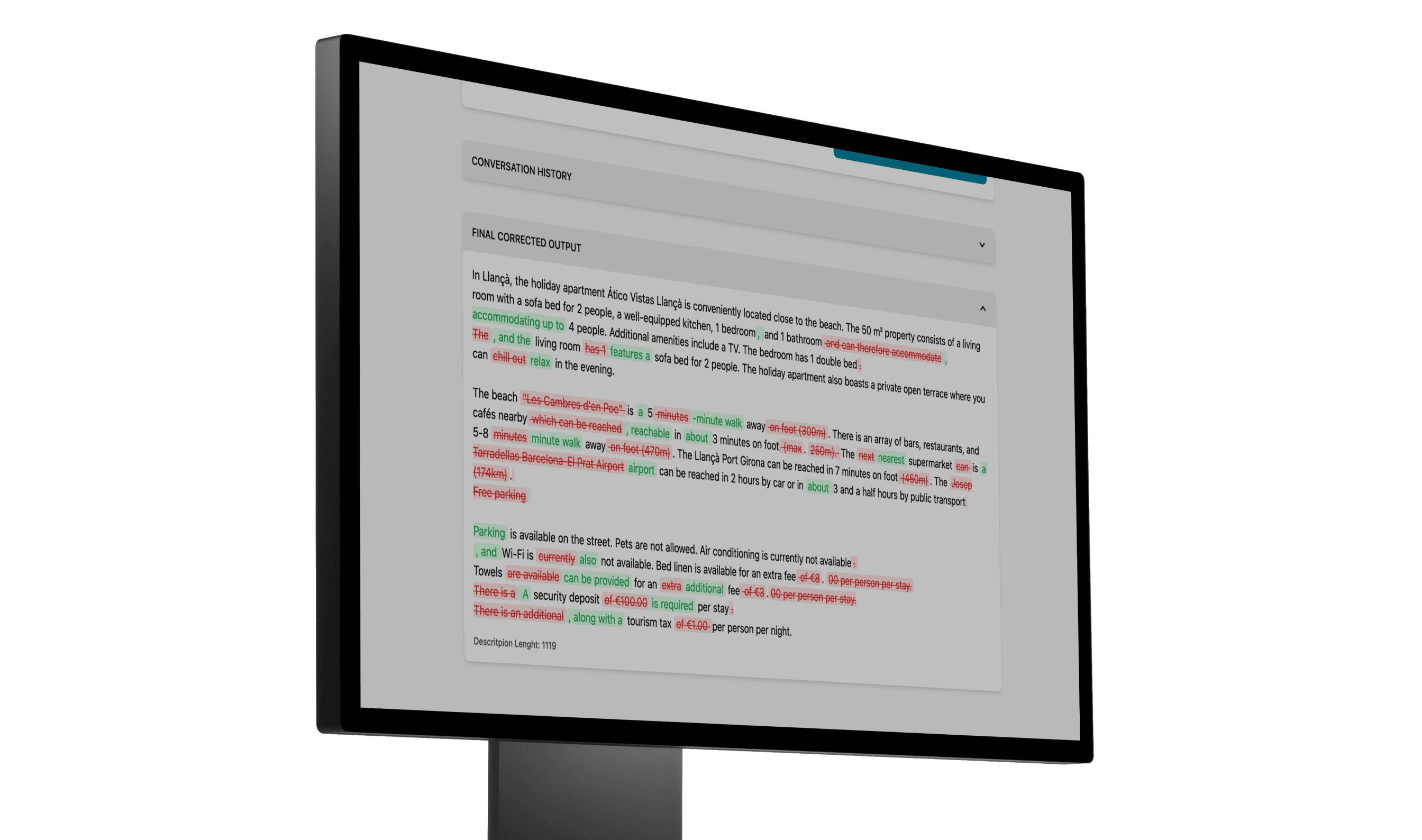
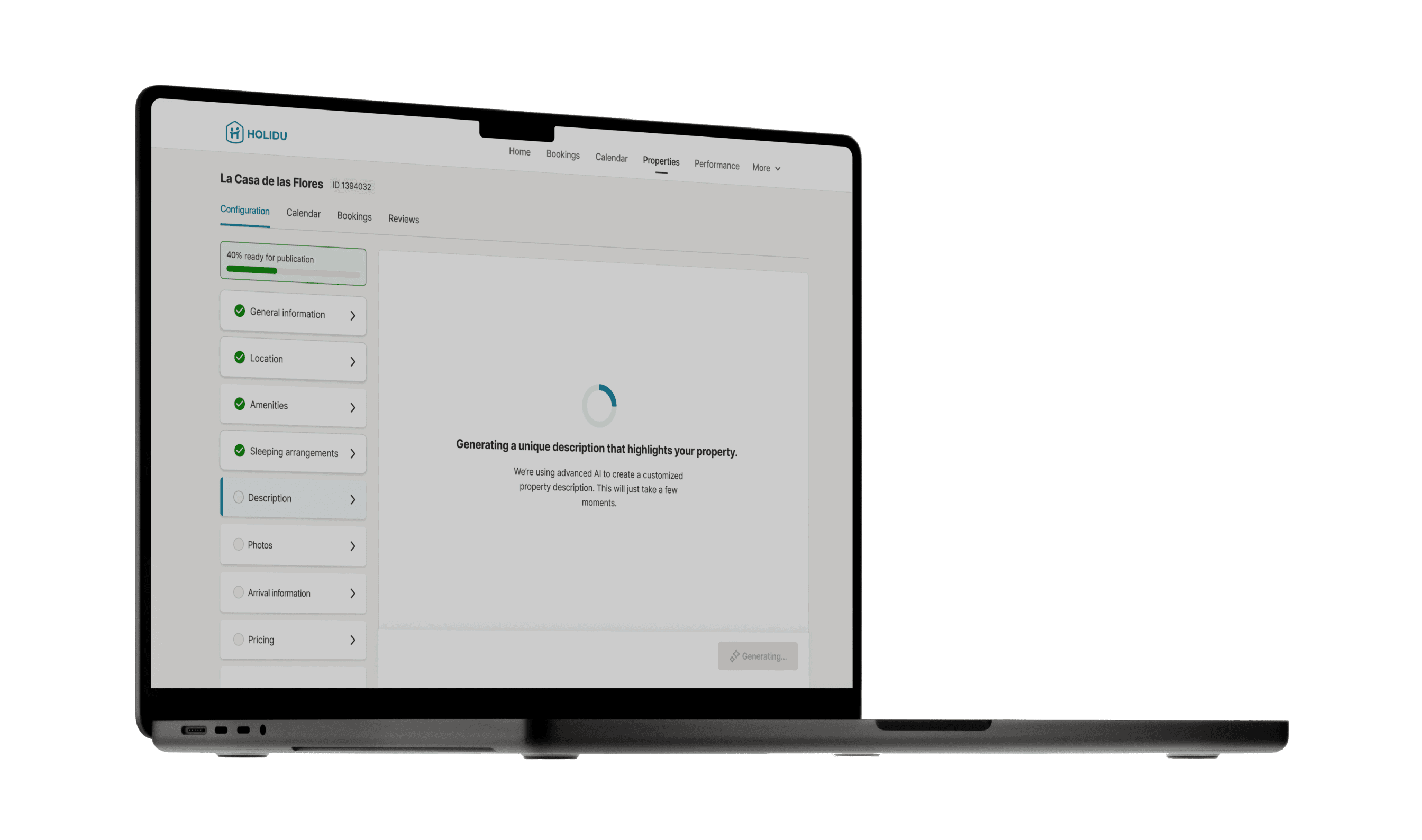
In collaboration with our partner Holidu, we developed a fully automated tool to write highly optimized description texts for vacation rentals using AI. Holidu manages thousands of vacation properties across Europe, and each property needs compelling descriptions that attract guests while complying with strict platform requirements.
The challenge was multi-faceted: distribution channels like Booking.com, Airbnb, and VRBO enforce rigid rules on description texts. Each platform limits text length differently, and all prohibit email addresses, phone numbers, external links, and any mention of fees in the description. Beyond these technical constraints, descriptions need to be translated into multiple languages that property hosts often don't speak, while maintaining an optimal information structure that highlights the property's best features in the right order.
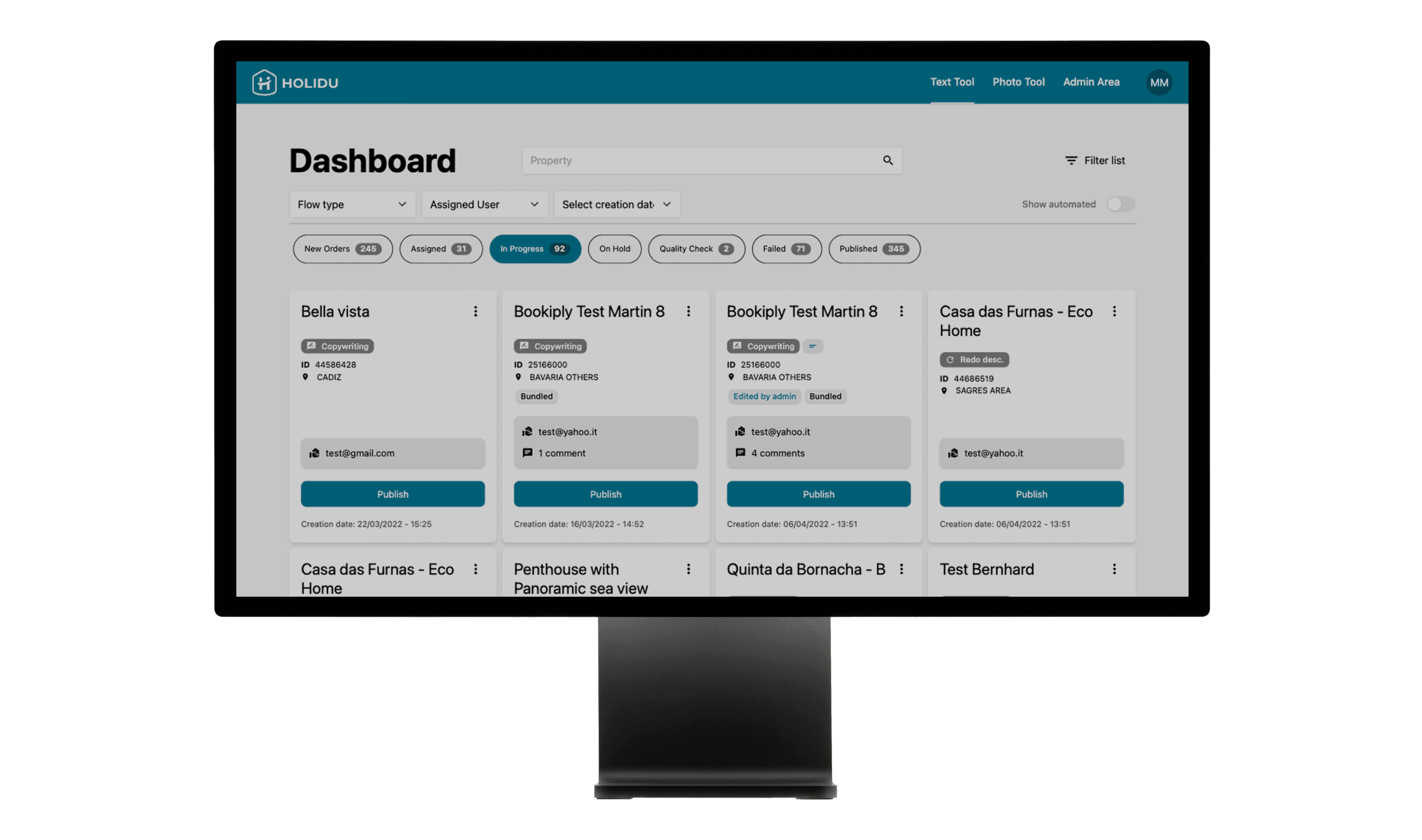
Before AI, Holidu relied on a labor-intensive manual process. We developed a software that enabled Holidu to scale by distributing work to freelance copywriters across Europe. Copywriters would write descriptions in English and German, then translators would proofread automatically translated texts using DeepL. As Holidu grew, this model became unsustainable.
We evolved the system to generate first drafts based on text blocks and rules, with copywriters only improving the output. Eventually, the tool could automatically generate descriptions without copywriter review for properties without special requirements. When OpenAI released their first capable models, we took a careful first step: using AI to make the rule-based text sound more natural, while ensuring the AI could never add invalid information.
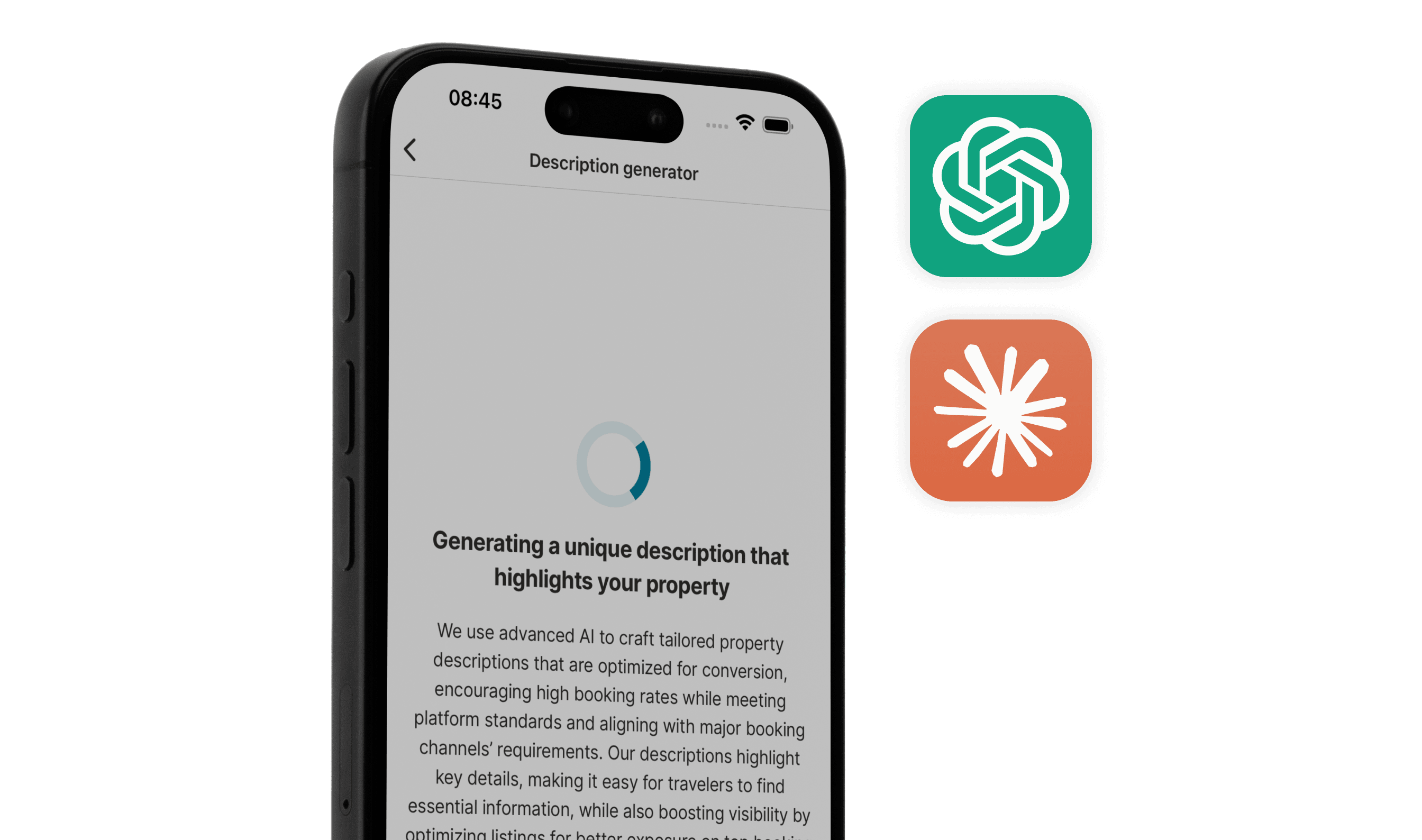
With OpenAI GPT-4 and Anthropic Sonnet 4, we made the breakthrough to fully generating descriptions from raw property data. This required several key learnings: enriching data with context before sending it to the LLM dramatically improved results. For example, instead of listing individual kitchen items, we group them into 'well-equipped kitchen' with relevant details. We also included carefully crafted examples in our prompts to teach the AI what high-quality descriptions look like, helping it understand the desired tone, structure, and style.
Another critical insight was splitting the task into specialized prompts. One prompt generates the description based on property data and host input, while a separate review prompt validates that the text respects all distribution channel rules. We also learned to match models to tasks: Anthropic's Sonnet 4 excels at generating and reviewing descriptions, while simpler models like OpenAI's GPT-4o mini handle translations efficiently. This strategic model selection significantly reduces costs and improves generation speed.
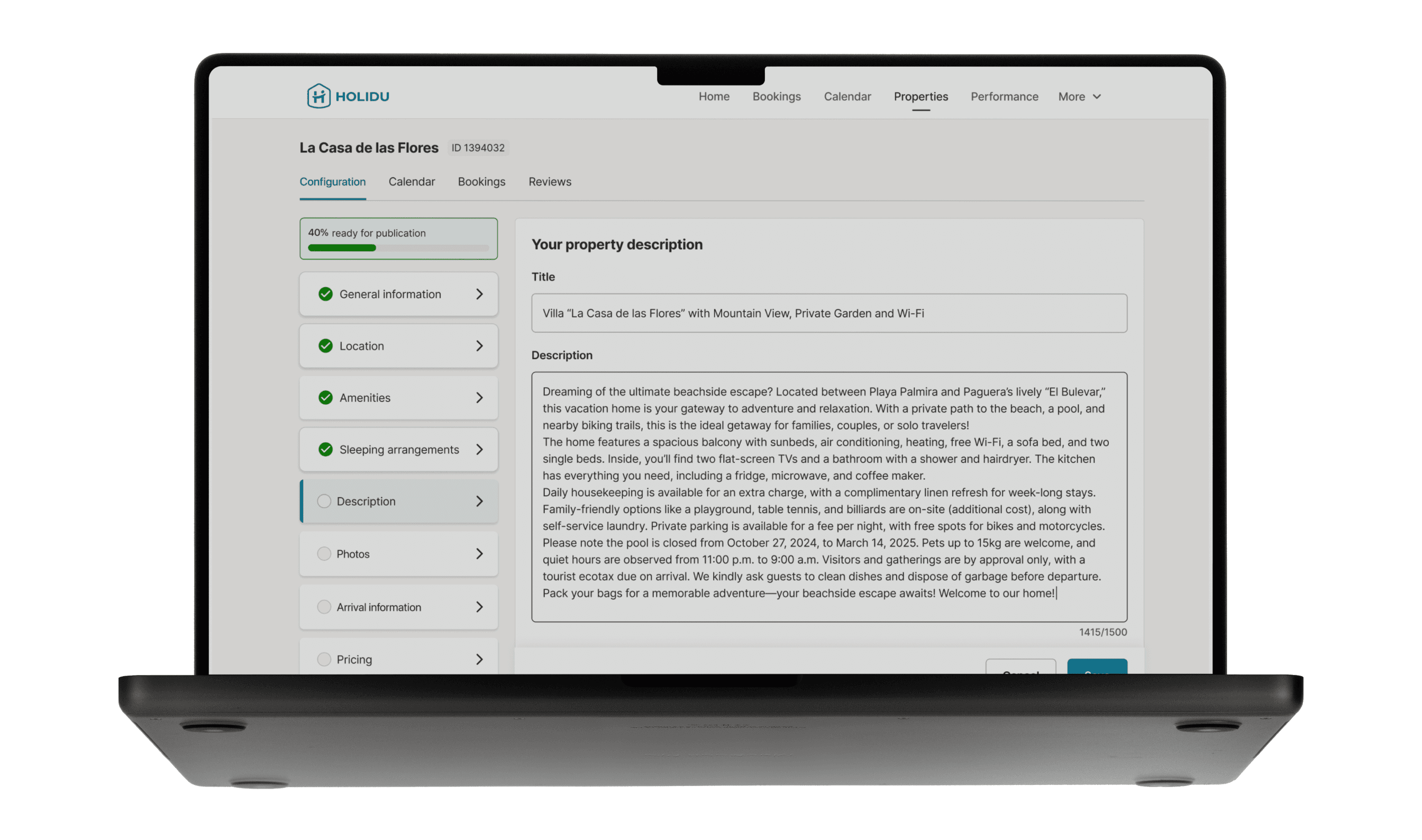
The latest evolution addressed a long-requested feature: allowing hosts to edit their descriptions. This was crucial because restrictions must be respected—violating channel rules means properties go offline, directly impacting revenue. Without AI, preventing hosts from accidentally breaking rules while editing would have been nearly impossible without locking down the editing experience.
Now, when hosts edit their descriptions, we leverage the LLM to automatically correct any rule violations, then run the review prompt again to validate compliance. This gives hosts the freedom to personalize their listings while maintaining the guardrails that keep their properties online across all distribution channels.
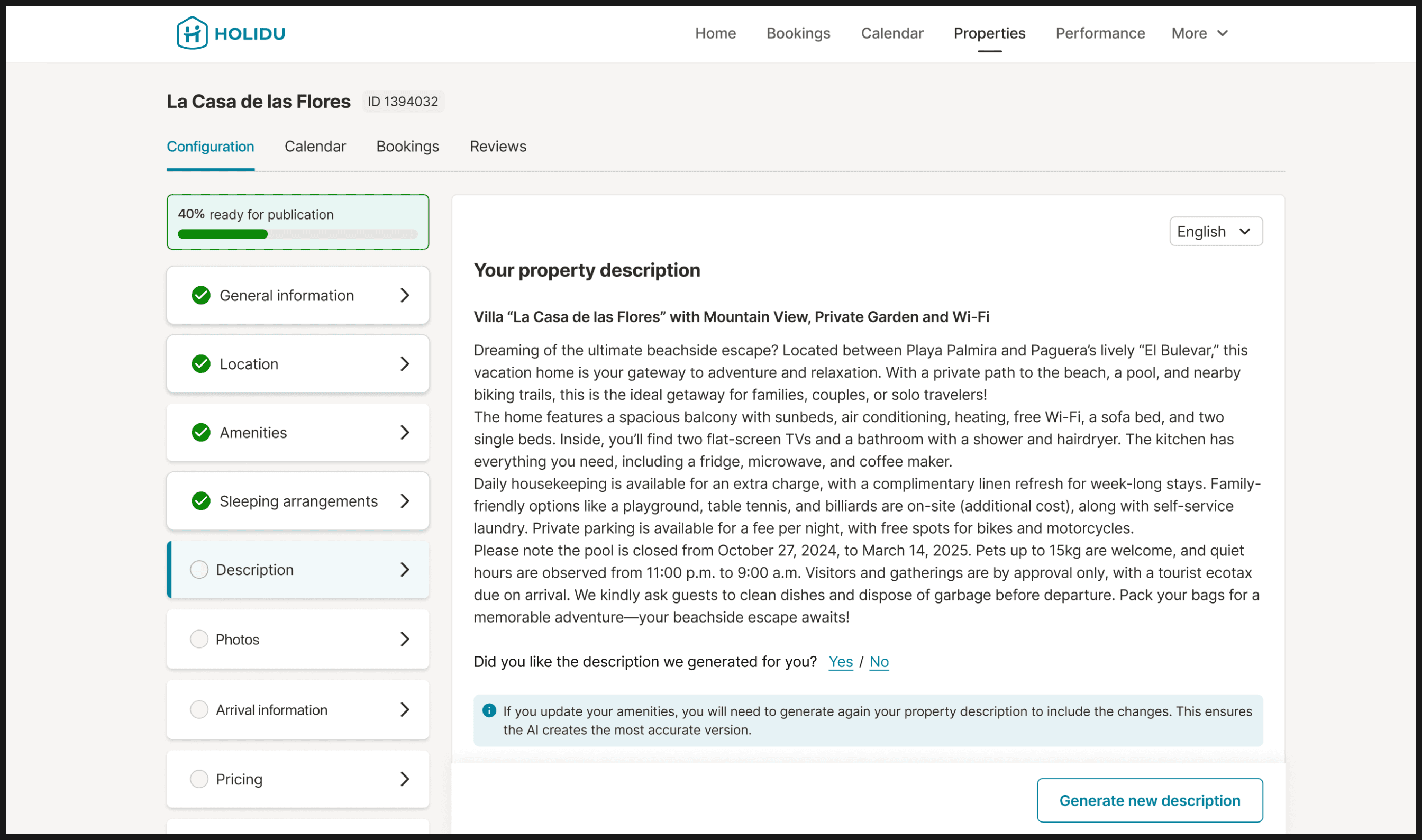
- Over 3,000 descriptions generated with 99%+ acceptance rate
- Fully automated process with no manual intervention required
- Multi-language support with automatic compliance checking
- Host editing capability with automated rule enforcement
Other projects
Check out these projects too.

